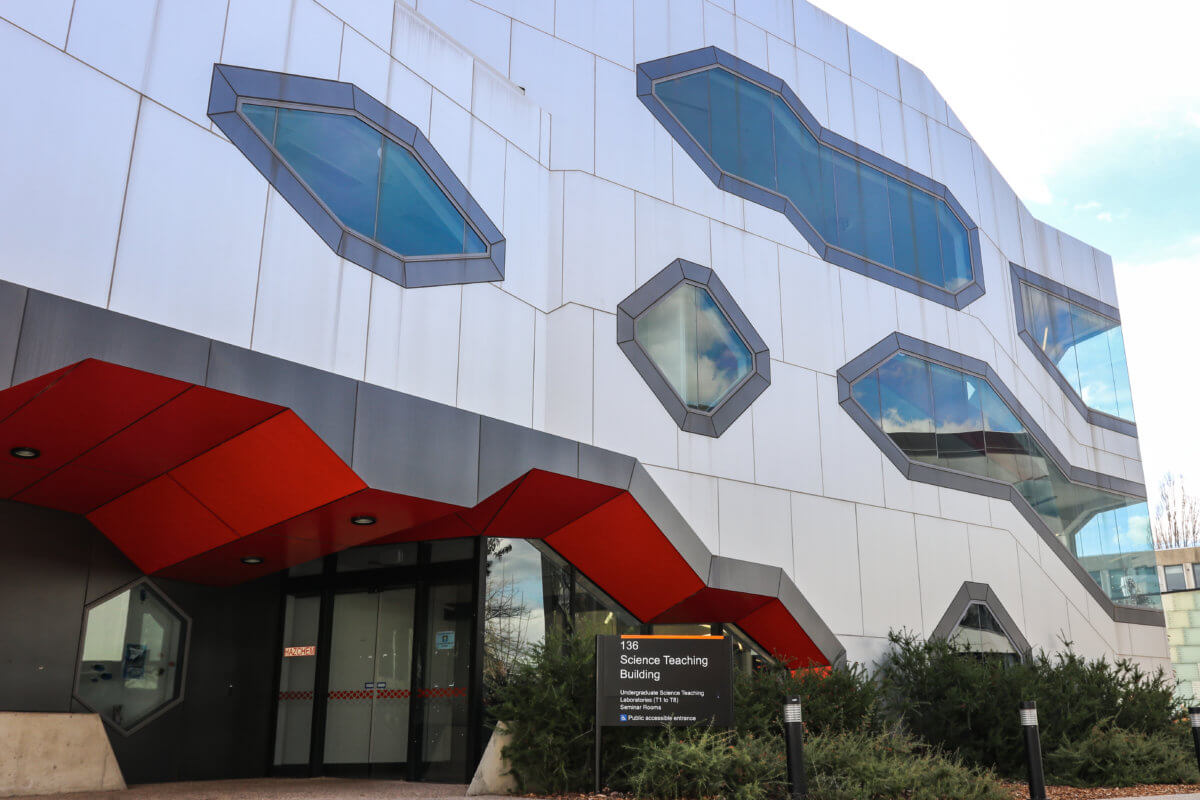For National Science Week, the ANU Science Society assembled a Women in STEM (Science,Technology, Engineering, and Mathematics) panel discussion to highlight the achievements made by female lecturers, teaching staff, and researchers here at the ANU.
The panel consisted of Professor Penny Brothers (Director of the Research School of Chemistry), Associate Professor Alison Behie(Head of School of Archaeology and Anthropology), Associate Professor Joan Licata (Convenor for Mathematics Honours), Dr Annie Colebatch (Researcher and lecturer at the ANU School of Chemistry), and Dr Jia-Urnn Lee, (Space Technical Lead at FrontierSI).
In Australia, women comprise only 28 percent of the STEM workforce, and only a third Australian students studying STEM. STEM also has one of the highest gender employment gaps in the country. The ANU’s strategic target for 2021-2025 is to increase the number of women employed in engineering and computer science to 40 percent
The Women in STEM panel provided an opportunity for discussion on issues that women face in the field, and to celebrate the achievements of the panellists.
The discussion began with the best aspects of a career in STEM. The panellists praised the variety, innovation, flexibility, and global collaboration that STEM can provide as well as the ability to follow their passions and interests.
The discussion then shifted to the changes occurring in STEM in the 21st century. There was a focus on positive discrimination as a strategy to increase female employment in STEM. Positive discrimination is the allocation of employment, resources, or policy that favours disadvantaged minorities to rectify inequalities.
Panellists described how these opportunities have increased the number of women employed in STEM, and opened important discussions surrounding the culture in STEM. They also mentioned how positive discrimination has helped expose biassed metrics used to recognise, reward and evaluate scientists.
With the acknowledgement of the inequality in STEM, the panellists were asked to share their experiences of sexism.
Several panellists commented on the issue of the inflexibility of STEM and parenting. Associate Professor Alison Behie described discriminatory language such as “playing the baby card”, or “sob stories” in response to balancing the experience of IVF or, performing other carer responsibilities, and how this affected her work, including grant writing.
Professor Penny Brothers, who began lab work in 1979, found the labs plastered with posters of naked women, who “weren’t even afforded the dignity of a face”. According to Brothers, this was not uncommon, nor easily challenged at the time. Brothers expressed immense disappointment that 40 years on, we are still having discussions surrounding inequality and sexism in STEM.
The panellists now find themselves pioneering cultural change in their departments. Some described promoting women-only employment positions, and they are all hopeful in creating institutional change for a new generation of STEM students.
Other panellists described a positive experience in STEM without sexism, shining a light on improvements made in STEM’s workplace culture.
Currently, 80 percent of women who study STEM do not continue into STEM roles due to discrimination, inflexibility, lack of female role models, and a male dominated culture etc. The goal of positive discrimination, as described by Dr Colebatch, was to change the image of what success looks like in STEM. However, this may result in the burden of cultural and institutional change being placed on high achieving women, who are expected to work while improving workplace culture. This links to the sentiment expressed by a number of panellists that gender inequality in STEM is not only a women’s issue. Moreover, no male staff members nor students attended the event.
The panellists acknowledged that while positive discrimination is helpful, it is only a short-term solution. Associate Professor Joan Licata provided an alternate perspective, that although she endorsed and implemented women’s only positions, cultural change was the biggest aspect to address. This sentiment is echoed in Australian Government strategies to improve gender inequality, which includes reducing bullying and harassment in the workplace and improving hiring diversity, flexibility, pay gaps, and parental support.
Indeed, it was raised that the issue of women in STEM was only one aspect of how STEM can improve its diversity and inclusivity.
The timing event falls within a tumultuous global environment for womens’ issues. Social and community norms are changing, and it remains to be seen what a generation who have been inspired by the likes of Grace Tame, Brittany Higgins, and Jacinda Ardern will bring to the table.
We acknowledge the Ngunnawal and Ngambri people, who are the Traditional Custodians of the land on which Woroni, Woroni Radio and Woroni TV are created, edited, published, printed and distributed. We pay our respects to Elders past and present. We acknowledge that the name Woroni was taken from the Wadi Wadi Nation without permission, and we are striving to do better for future reconciliation.
